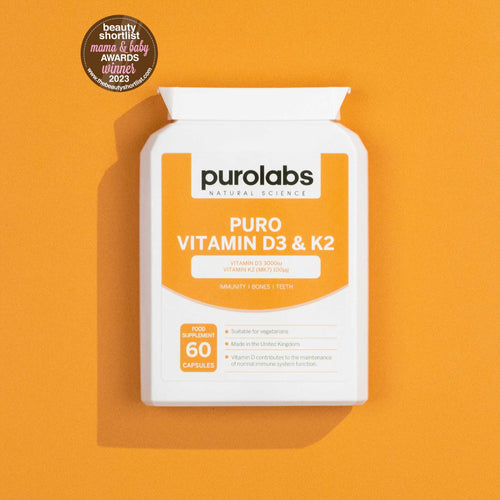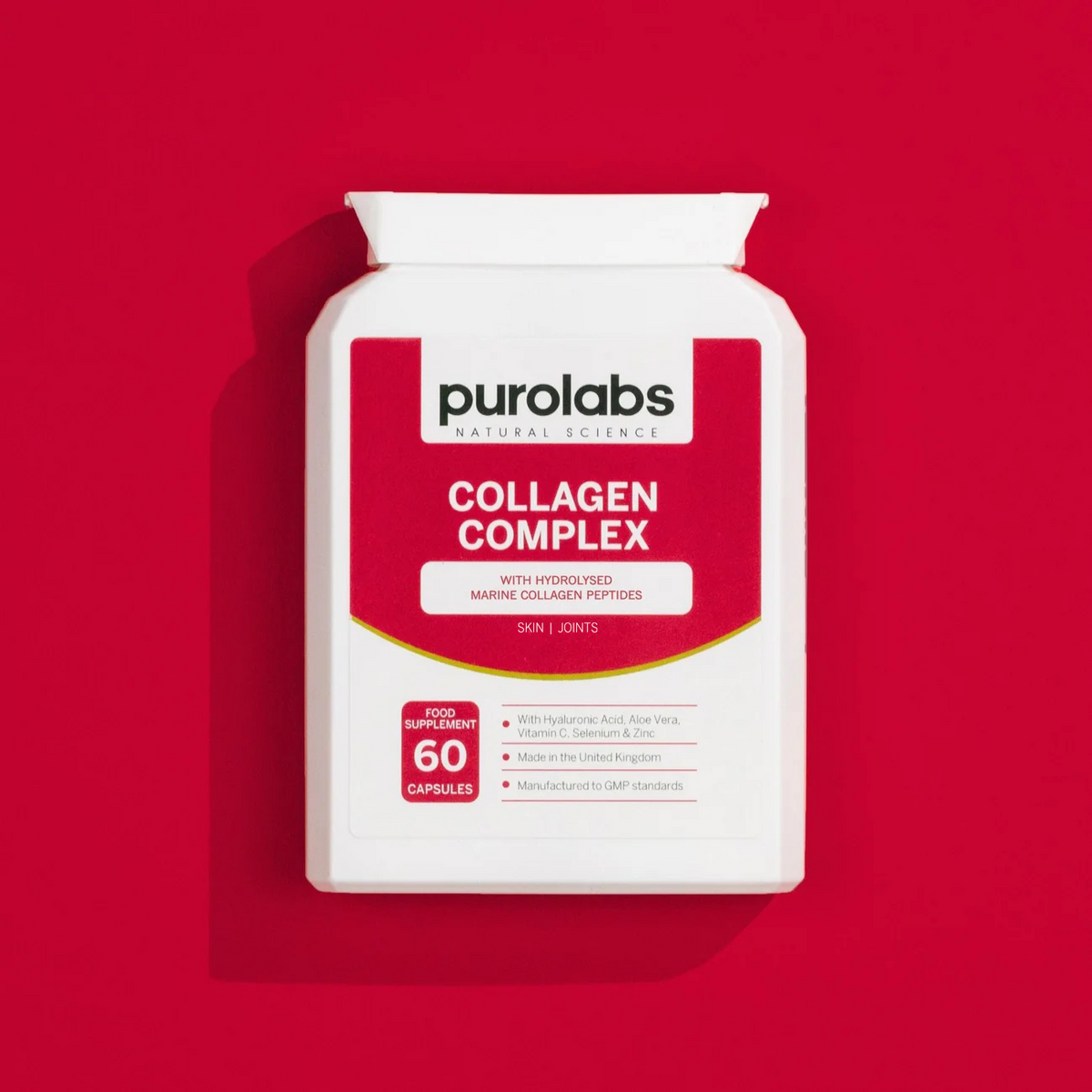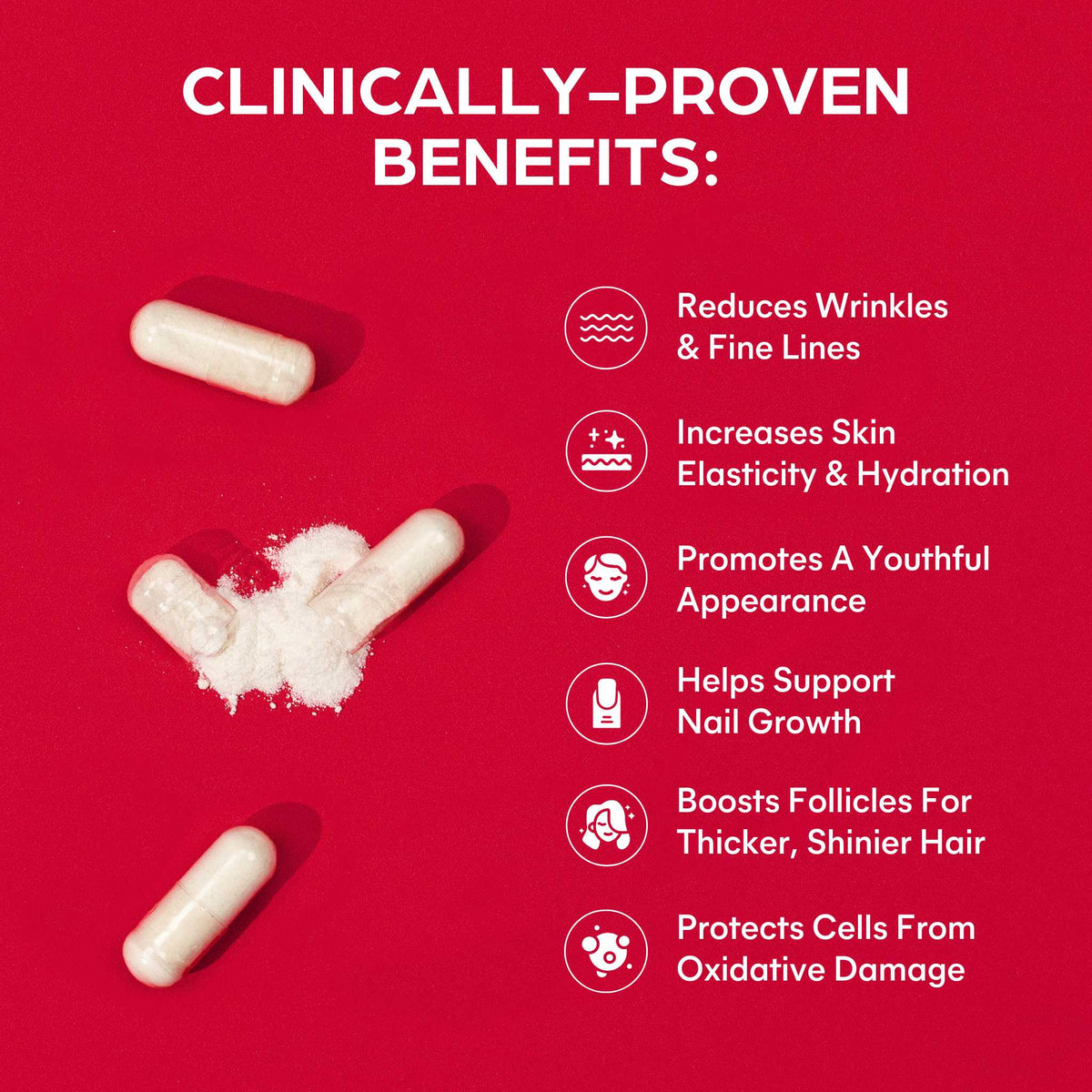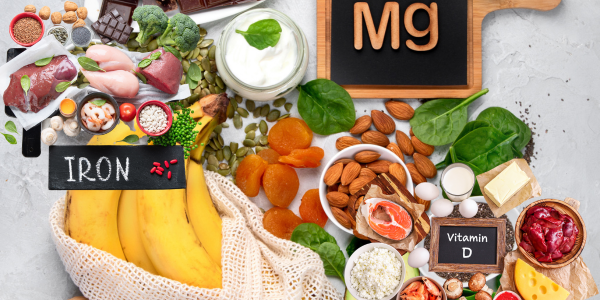Nutrient deficiencies are common and will vary depending on life stage. For instance, when you're going through rapid growth or reaching later stages of life, you'll need more calcium and vitamin D to keep your bones healthy. If you're pregnant, it's crucial to have enough folate, iron, and omega-3 to support your baby's development1.
It's important to evaluate your life stage, gender, age, dietary needs, and health objectives to guarantee you're getting all the nutrients required for excellent health. You should regularly reassess these factors as you age to maintain your well-being at its best.
Although personalised nutrition is ideal, there are some nutrient deficiencies that are widespread among the population and are frequently observed in the clinic. If you are uncertain about where to begin or want to ensure that you are not lacking in any common nutrients, continue reading for some suggestions.
Vitamin D
Living in the Northern Hemisphere means shorter and greyer days for most of the year compared to those living by the equator.
Results from the UK National Diet and Nutrition Survey showed that 23% of adults are vitamin D deficient, significantly increasing during the winter months to a staggering 40%2.
The human body can convert UV rays into vitamin D, which is crucial for hormonal and immune system function. To maintain healthy levels of vitamin D, it's recommended to expose our skin outdoors for at least 15 minutes a day when the sun is shining.
Signs of vitamin D deficiency are:
- Fatigue
- Muscle Weakness
- Asthma
- Depression
- Auto-immune disease
- Increased risk of infections
- Frequent viral infections
Vitamin D is a nutrient I strongly recommend to supplement, as the rates of deficiency are so high, with vitamin D being an essential nutrient for overall health.
Reaching our required levels of vitamin D intake is simply more difficult when we live in colder, wetter climates. The NHS recommend that we all supplement with 10mcg of vitamin D daily in the UK3.

Vitamin D3 & K2
Magnesium
Magnesium is a nutrient that is often overlooked. Up to 15% of the UK population has severe magnesium deficiency4.
One of the main reasons for this deficiency is the decrease in soil quality due to modern agricultural practices. Over the past century, mass farming has led to poor soil quality, resulting in a significant decrease in magnesium levels in crops compared to several decades ago.
It is essential for us to ensure our magnesium levels are balanced because it contributes to bone health, helps regulate the nervous system and manage stress, boost sleep quality and aid with concentration.
Signs and symptoms of magnesium deficiency are5,6:
- Insomnia
- Restless leg syndrome
- Metabolic disease
- Anxiety/depression
- Low blood pressure
- Headaches
- Fatigue
Magnesium deficiency can also be asymptomatic, meaning there are no obvious signs and symptoms.
To prevent deficiency, increase your intake of magnesium-rich foods such as dark leafy green vegetables, nuts and seeds, avocado, and dark chocolate. However, soil quality has changed over the years; obtaining the recommended levels of magnesium through diet alone may be difficult.
I advise adding magnesium to your supplement regime, it is an incredibly safe mineral to take7.

Magnesium Citrate
Iron
Iron deficiency anaemia is a widespread global issue, particularly affecting women of reproductive age. The World Health Organisation estimates that up to 37% of pregnant women and a third of women aged 15-49 worldwide are anaemic. Given its prevalence, it is important to be aware of this deficiency and take necessary precautions8.
Signs and symptoms of iron deficiency are9,10:
- Fatigue and lack of energy
- Shortness of breath
- Heart palpitations
- Pale skin
- Headaches
- Hair loss
- Restless leg syndrome
Anaemia is also a risk if you are vegetarian or vegan. This is because plant sources contain non-heme iron which isn't absorbed by the body as easily as heme iron found in animal sources.
Heme Iron Rich Food sources:
- Red meat
- Eggs
- Salmon
- Prawns
- Liver
Non-Heme Iron Rich Food Sources11:
- Lentils
- Beans
- Spinach
- Broccoli
- Green Peas
If you follow a plant-based diet, I suggest taking iron supplements to top up your iron levels. Consuming vitamin C rich foods is also an excellent way to increase your iron absorption. A citrus salad is a tasty option to boost your iron levels.

Iron Complex
While it's best to get most nutrients from your diet, some nutrients are needed in higher amounts during certain life stages or if you have a significant deficiency. For example, magnesium can be difficult to get from food, so taking a supplement may be helpful.
Supplements can ensure you have optimal levels of nutrients for good health. Remember to choose supplements that meet your specific health needs and life stage to get the most benefit!

 Beauty
Beauty
 Bone Health
Bone Health
 Brain Health
Brain Health
 Energy
Energy
 Eye Health
Eye Health
 Gut Health
Gut Health
 Hair
Hair
 Hormonal Health
Hormonal Health
 Heart Health
Heart Health
 Immunity
Immunity
 Joints
Joints
 Menopause
Menopause
 Pregnancy
Pregnancy
 Kids
Kids
 Sleep
Sleep
 Stress & Mood
Stress & Mood




















